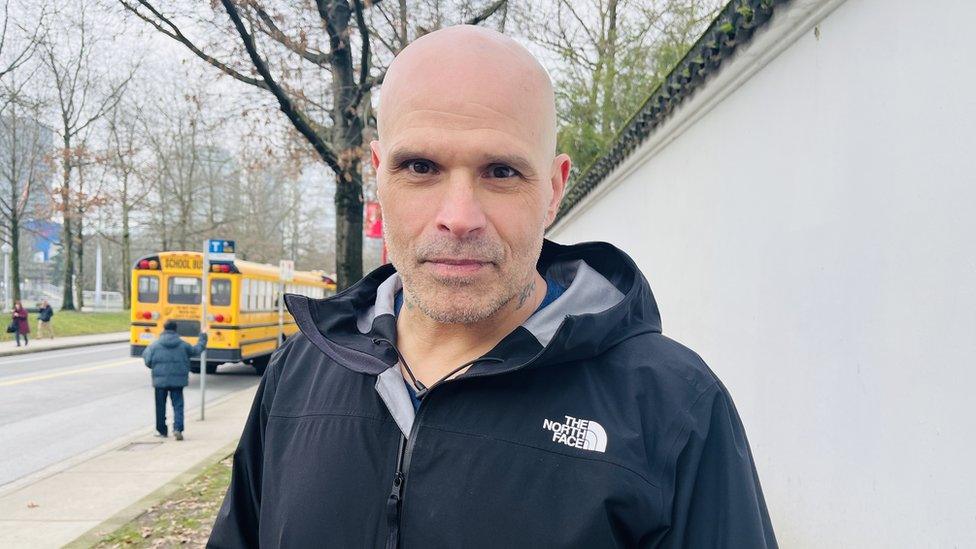Oregon recriminalises drug possession after overdoses rocket
- Published

Public sightings of people more openly consuming drugs became more common after the passage of Measure 110
Oregon has approved a state law that recriminalises drug possession.
The law rolls back an experimental policy - the most liberal drug measure in the US - that made possession for personal use a ticketed offence with a fine up to $100 (£76).
The new legislation penalises those possessing small amounts of drugs with probation, and up to 180 days in jail.
The governor said the state still aims to provide a path for drug treatment, rather than punishing drug users.
Tina Kotek, the Democratic governor, signed the bill on Monday. It goes into effect on 1 September.
Rehabilitation and destigmatisation was the intention of the original law, known as Measure 110, when it was passed in a 2020 voter measure, but a spike in the number of overdoses caused lawmakers and supporters to backtrack.
Measure 110 was seen by many as the most liberal effort in the US to decriminalise drugs like cocaine, heroine and methamphetamine.
State leaders admitted, however, that there were several implementation issues. Roadblocks to rehabilitation remained, and the upswing in fentanyl overdoses caused an uproar in the state.
In cities like Portland, sightings of people openly using drugs on streets, sidewalks and in front of stores increased and images appeared in national media.
Portland Mayor Ted Wheeler told the New York Times: "The truth is that addiction rates and overdose rates skyrocketed."
The mayor, who remained supportive of Measure 110, accused the state of failing to implement the law effectively. He said they decriminalised the use of drugs before putting the proper treatment services in place.
In addition to enhanced penalties for personal use possession, the new law still establishes ways for treatment to be offered as an alternative to criminal penalties.
Governor Kotek said the law's success will depend on coordination between multiple layers of government on the state and local level, as well as health care providers, all of whom she described as "necessary partners".
A few of those who originally supported Measure 110 voted for the new law during this year's legislative session, as there appeared to be signs of a new voter effort to overturn it. The state's more progressive Democrats opposed the change, however.
They remained concerned that increased criminal penalties would only lead to more arrests and fail to address the root cause of the state's drug problem.
"Research is consistently showing that (for) people who are incarcerated in jails and prisons, overdose has gone up substantially," Kassandra Frederique, the executive director of the Drug Policy Alliance, told USA Today.
"And the fact that when people leave jails and prisons, the likelihood of overdose deaths also goes up substantially in comparison to the general population."
Related topics
- Published30 March 2024
